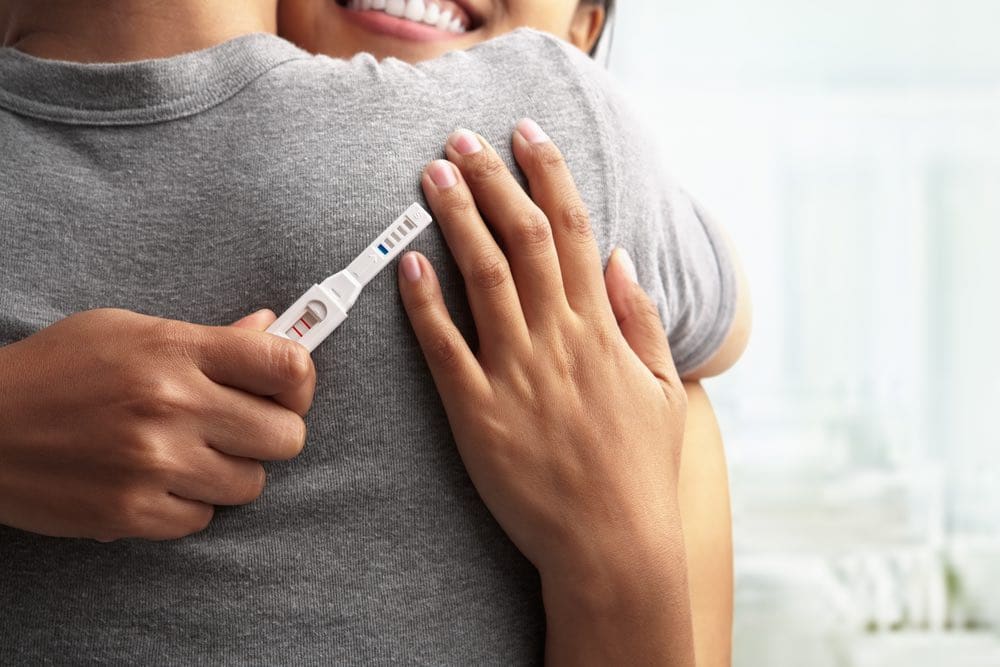
Welcome to the first trimester! So you’ve just been given the exciting news that you’re expecting… You’re a mum-to-be!
Aside from the emotional roller coaster mainly fueled by your hormones running amok in your system, you’re probably wondering what’s next. What exactly is the first trimester. And what should you expect?
If you’re a first timer, there’s so many questions. What do you do? What will happen to you and your growing bub in the next few weeks? What do you really need to know? So we’ve broken it down to an easy to read article. Here’s what you need to know about the first trimester.
What is a trimester?
Nope we’re not referring to a university trimester, but the gestational period of your pregnancy. It is broken up into three trimesters of development. The first trimester begins you even conceive. It is measured from week one, when your last period ends, then carried through to conception to week 13 of your baby’s life growing inside your belly.

Changes you’ll feel in the first trimester
While some women may not feel any changes in their body, others experience early signs of pregnancy such as implantation bleeding, missing a period, sore and tender breasts and even morning sickness.
It may well be one of these symptoms that prompts you to check if you in fact are pregnant. However, even if these symptoms aren’t obvious to you, it doesn’t mean your body isn’t going through a massive change. You are growing a tiny human, so if you’re feeling tired like never before, this is quite common, however mention it to your healthcare practitioner just to be safe.
At about week 6 you may start to feel nauseous, have an aversion to certain foods or smells. This wonderful part of pregnancy is morning sickness. Most OB’s and midwives recommend sipping water, eating water crackers and eating foods that are low in fat. This won’t last all pregnancy for most women, and should taper off in the second trimester.
Your GP, obstetrician or midwife may also recommend you to start a prenatal vitamin, these are different to a normal multivitamin so make sure you buy the correct one. Ensure a healthy nutrition throughout your pregnancy. Be sure to avoid food that have a high risk of carrying listeria.
You will also begin your blood test and screenings during this trimester. Firstly to determine if you are in fact pregnant, how far along you are and of course to see if the embryo has implanted correctly and is growing healthily.
Causes for concern in the first trimester
Pregnancy comes with many changes to our body, it makes you wonder what’s normal and what isn’t. If you experience any of the following symptoms call your doctor or go to your local Emergency Department. You’re best off getting checked out and it being nothing than doing nothing and putting yourself or baby at risk:
- Heavy vaginal bleeding
- Severe abdominal pain/cramping
- Temperatures above 38.5 degrees Celsius
- Vision disturbances
- If you are unsure ring your doctor or Health Direct on 1800 022 222
The Royal Women’s Hospital has great information if you’re worried about your first trimester pregnancy, you can see it here.
Changes in baby in the first trimester – one month
The biggest changes in your baby’s development happen in the first trimester. In the first four weeks, all major organs and systems have begun forming. The beginnings of the eyes and ears have started developing, even though the embryo still looks like a little tadpole. Your baby’s heart has begun beating. By the end of week 8, the embryo has started to look more like a human, however the head is much larger than the rest of the body. The arms and legs are clearly visible, bones are starting to develop and the main organs continue to develop. You may be able to hear your baby’s heartbeat with a doppler.
Changes in baby in the first trimester – two months
After week 9, your baby graduated from embryo to foetus. His or her eyelids, finger and toe nails have formed and the voicebox has started to develop. External genital organs are now developed.
Changes in baby in the first trimester – three months
Even though the organs and body systems are fully formed by the end of 12 weeks, the foetus cannot survive independently. Although it isn’t spoken of very often, it is quite common for women to miscarry. If you think you are experiencing a miscarriage contact your doctor immediately or go to the Emergency Department.

Your first trimester will fly by!
It may feel like the first trimester passes quite slowly, particularly if you experience morning sickness and fatigue, however before you know it you’ll be half way to your due date. Want to know what to expect in the second trimester? Read our article that tells you all about the second trimester of pregnancy.
Here’s to a safe and happy first trimester!
*This article was first published in 2019 and updated for information accuracy and links in 2020.














